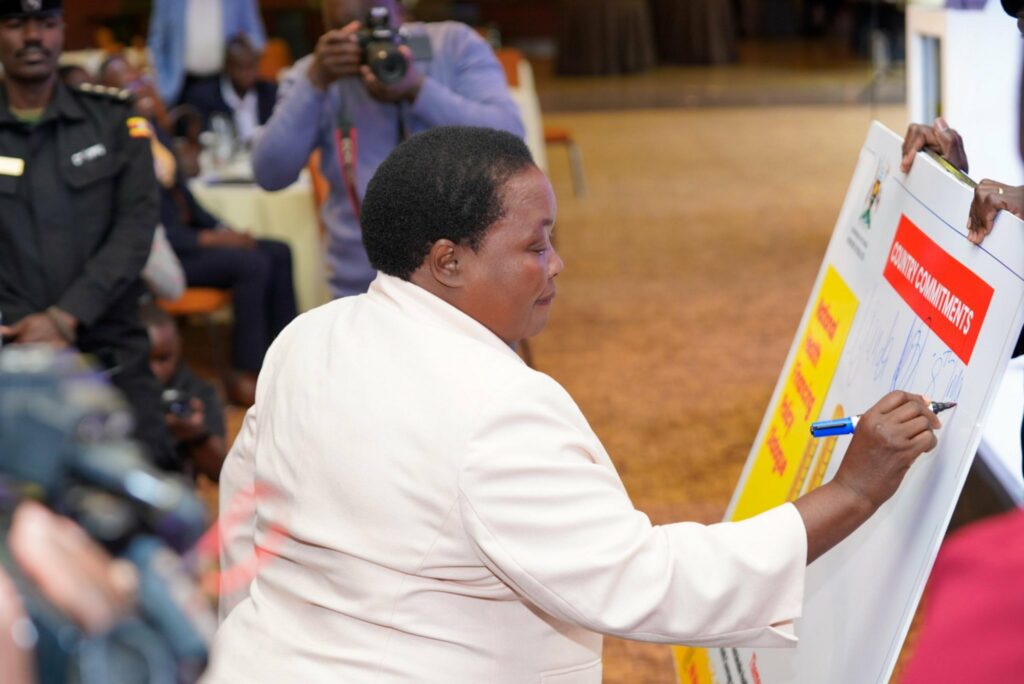
 Mama FM
Mama FM

 Mama FM
Mama FM
9 May 2025, 4:45 pm

By Byamukama Alozious
More than five years since it was first introduced, Uganda’s proposed National Health Insurance Scheme (NHIS) remains stalled, leaving millions of citizens vulnerable to catastrophic health costs and exacerbating inequality in healthcare access.
The NHIS Bill was first presented to Parliament in August 2019 by Hon. Dr. Michael Bukenya as a private member’s bill while serving as Chairperson of the Parliamentary Health Committee. It was passed by Parliament on 31 March 2021 during the 10th Parliament, but President Yoweri Museveni declined to assent, returning it to the Ministry of Health for amendments. Since then, the bill has not been reintroduced in Parliament.
Under the proposed scheme, salaried employees in the formal sector would contribute 4% of their income, with employers contributing 1%. Workers in the informal sector would pay an annual fee of UGX 100,000. These contributions would fund a national health fund aimed at promoting universal health coverage and reducing out-of-pocket spending.
Uganda’s Ministry of Health 2018 Midterm Review Report reveals that households spend 41% of their income on healthcare, far exceeding the 15% recommended by the World Health Organization (WHO). This places Uganda among the highest in out-of-pocket healthcare expenditure in East and Southern Africa.
During the National Dialogue on Health Financing held from 6 to 8 May 2025 at Commonwealth Resort Munyonyo, stakeholders emphasised the urgency of domestic health financing as donor support continues to diminish. Hon. Dr. Joseph Ruyonga, Chairperson of the Parliamentary Health Committee, stated, “Health financing in Uganda is heavily reliant on donor funding and is currently at an impasse due to donor withdrawal,” urging that the NHIS be prioritised as a sustainable solution.

Currently, private health insurance covers only 1% to 2% of Uganda’s population. The rest rely heavily on underfunded public health services or resort to expensive private care. “People sell land, cattle, or go into debt just to access life-saving treatment for cancer, diabetes, or heart disease,” said Melisa Nyakwera, Head of Commercial Banking at Stanbic Bank.
The NHIS Bill seeks to address this by pooling resources based on solidarity, where the healthy subsidise the sick and the wealthy support the poor. Services to be covered include outpatient and inpatient care, mental health, maternal and child health, dental and eye care, radiological investigations, and more.
Health rights activists, such as Abdulkarim Muhumuza, Head of Partnerships at Afya na Haki, argue that the Ministry of Health has delayed too long. “It’s been years since the bill was returned. The Minister should have presented revised amendments by now so that Parliament can debate and pass it for Presidential assent,” he said.
During the same dialogue, discussions centred around the theme “Sustainable Health Financing Strategy for Universal Health Coverage and Resilient Health Systems in Uganda,” reflecting on how domestic investment in health systems, like the NHIS, could improve access and equity. Experts pointed out that national insurance schemes, as adopted in countries like Kenya and Rwanda, have become critical vehicles for achieving Sustainable Development Goal 3.8 on universal health coverage.
Dr. Daniel Kyabayinze, Director of Public Health at the Ministry of Health, acknowledged the financing challenge, stating that “those below 18 or above 60 are often not contributing taxes, which affects the pool.” He suggested that local community organisations could mobilise resources to support each other while awaiting the national scheme.
Ugandans remain in limbo as they wait for the Ministry of Health to communicate a clear timeline for returning the revised bill to Parliament. In the meantime, millions continue to face the risk of financial ruin due to illness – a situation the NHIS was designed to prevent.